The Hasama Underwater Park is located just on the border between Tokyo Bay and the Pacific Ocean, and it is within 2 hours travel time from the city center. The Underwater Park is rich with fish because of the input of nutrition from the freshwater rivers and the Kuroshio Current running along the coast of Japan. This place is quite famous for the underwater shrine Torii and ‘Yoriko’ the Asian sheepshead wrasse.
YORIKO Asian sheepshead wrasse コブダイの頼子・波左間海中公園
The Asian sheepshead wrasse is called “Kobudai” in Japanese (as if it was a member of the Sea Bream family), it is a member of the wrasse family, and is a “hermaphroditic” species which can change sex between male and female. It first matures as a female and breeds, then changes sex to a male and participates in breeding again.
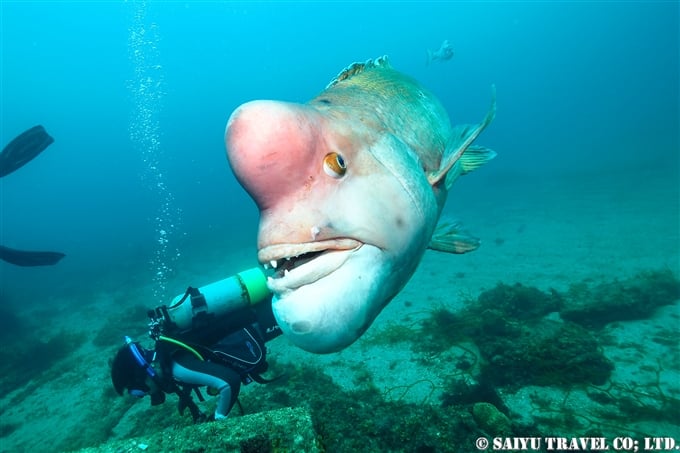
This “Yoriko” used to be a female paired with a male named “Yoritomo,” but one day “Yoritomo” disappeared perhaps because he lost the battle for territory. Following that development, “Yoriko” then became a male and has stayed that way to the present day. The lifespan of the Kobudai is thought to be about 20 years long, but “Yoriko” has already exceeded 30 years of age. He has come to be a very cherished and well-loved fish at the Hasama Underwater Park and taken on a mystic-natured creature who time has forgotten.
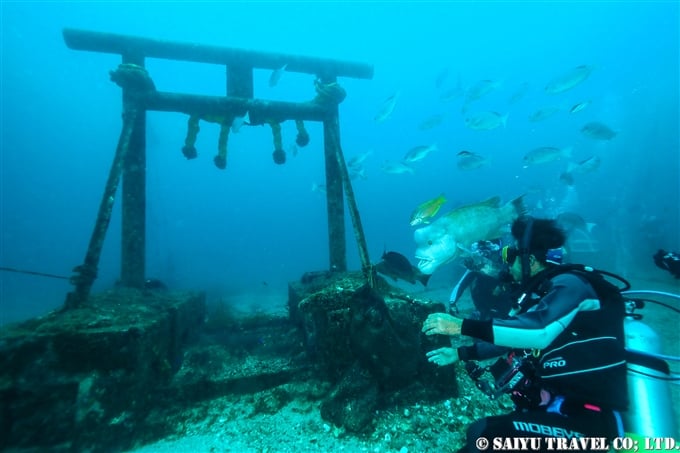
館山 TATEYAMA diving 頼子 Yoriko コブダイ Asian sheepshead wrasse
This is the famous underwater shrine, the only kind in the world, in the Hasama Underwater Park. It is an authentic shrine that was built in 1997 as a branch of the Susaki Shrine in Tateyama.
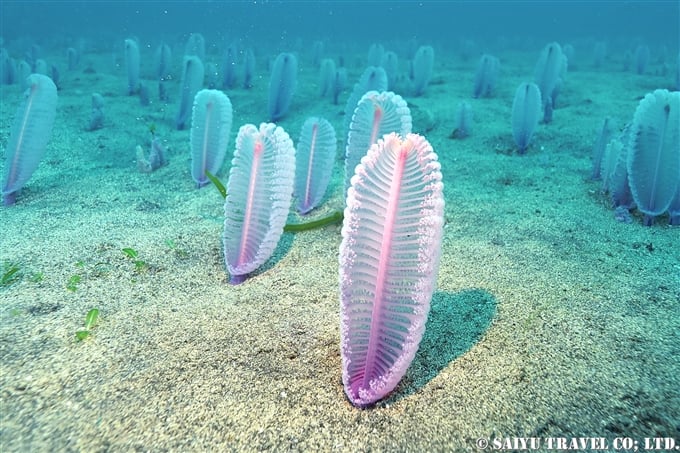
館山 TATEYAMA diving Seapen ヤナギウミエラ (2)
Another famous place in the Hasama Underwater Park is the “Sea Pen Colony” (in Japanese it is called ‘Yanagi-umiera’). It was the first time I could see these! Depending on the tide, it may or may not appear on the surface of the sand, so I felt so lucky to see the colony. The English name “Sea pen” is because of the resemblance to a Quill pen!
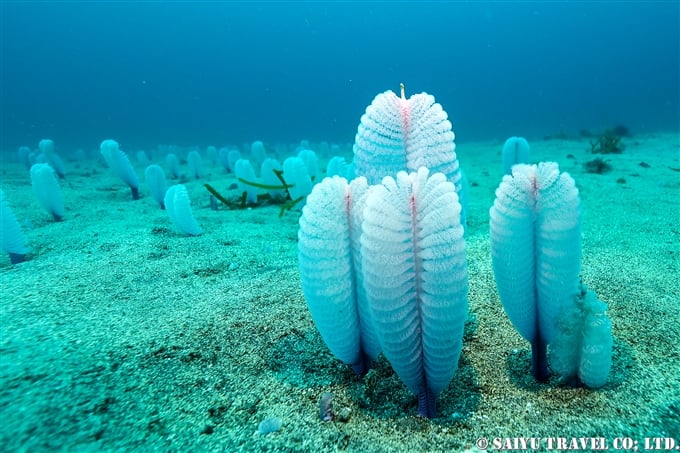
館山 TATEYAMA diving Seapen ヤナギウミエラ
A colony of the Sea Pens Virgularia halisceptrum .
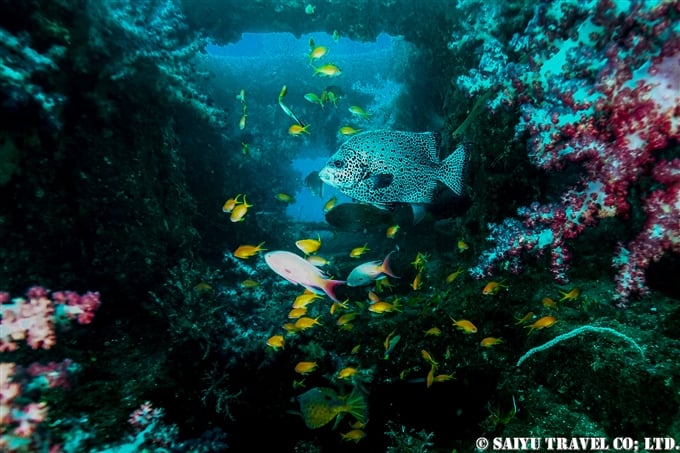
館山 TATEYAMA diving dream
There are many other areas for great fish sightings as well. There is a fish-reef called “Dream” where the scenery created by the soft corals and Sea goldie, as well as Redbar anthias and Cooper’s Fairy Basslets. 。
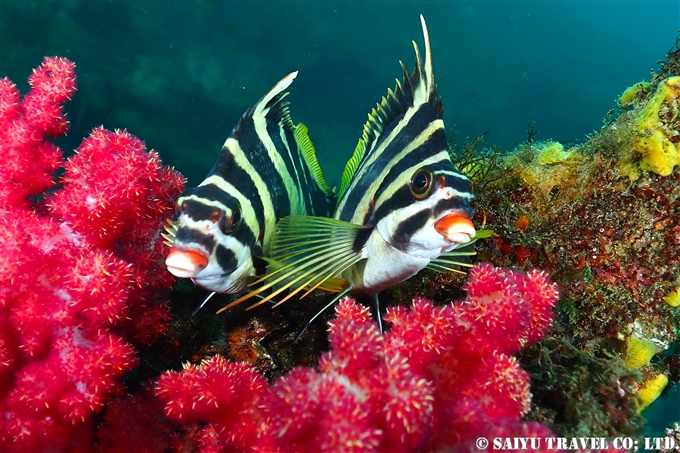
館山 TATEYAMA diving タカノハダイのクリニーニングステ-ション
This is the Spottedtail morwong cleaning station. The name for the fish in Japanese is “Takanoha dai” derived from the Japanese word for “Hawk feather” which is “Taka no ha.” This is based on the similarity of the stripes that are seen on hawk feathers, The polka dots on the tail also really catch my attention.

館山 TATEYAMA diving 仲がいいミギマキ
Here is a friendly pair of redlip morwongs.
Image: Mariko SAWADA
